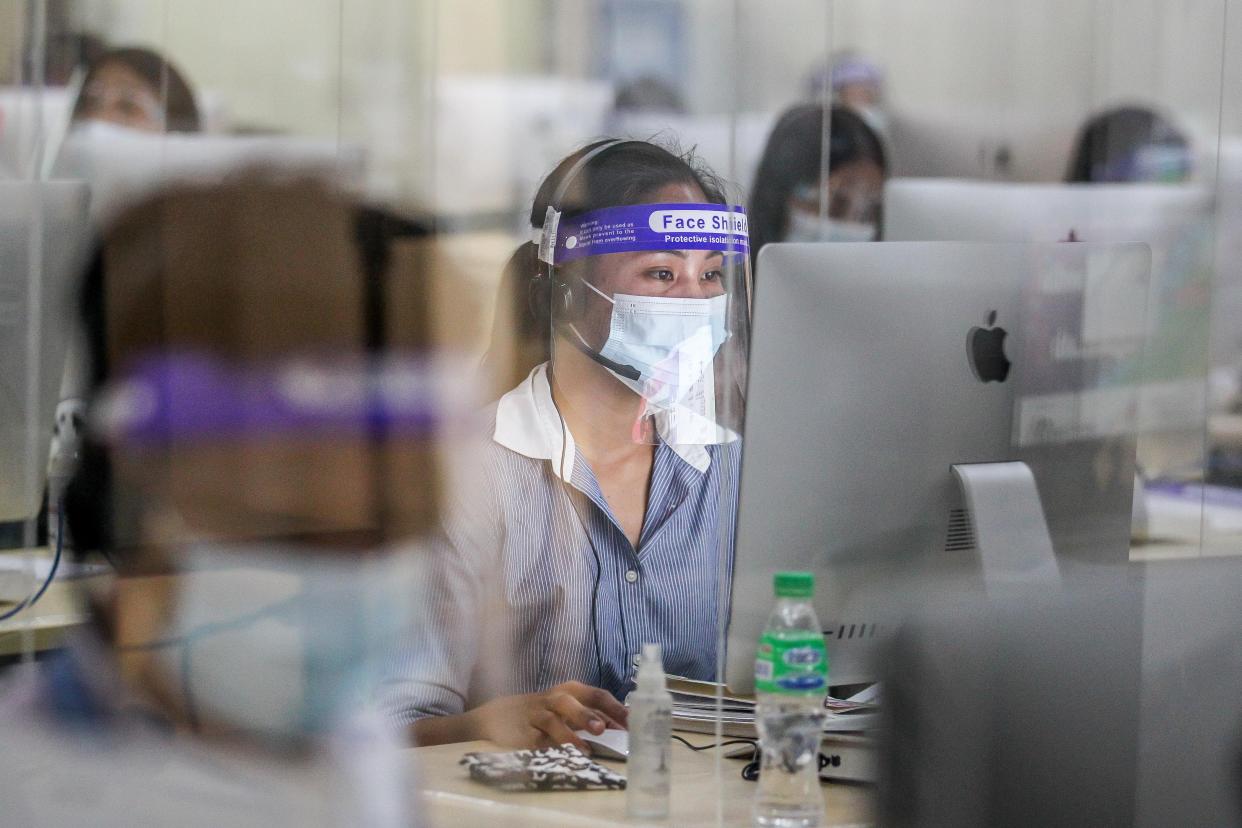Philippines to Keep $26 Billion Outsourcing Engine Humming Despite Crisis

By Ditas Lopez
The Philippines’ $26 billion outsourcing industry expects to continue growing despite the risks brought by the coronavirus pandemic, but sees a three-year government support plan as key to boosting its competitiveness.
The industry has shown a “tremendous resilience,” Rey Untal, head of the Philippine association of outsourcing companies, said in an interview in Manila. “We are cautiously optimistic of sustaining some level of growth for this industry in the near future.”
With a high level of English proficiency, a young population and cheap labor, the Philippines has been one of the global leaders in business-process outsourcing. But it continues to grapple with rising competition, having slipped to sixth place in advisory firm Tholons Inc.’s index of attractive outsourcing destinations, down one spot from last year.
Outsourcing revenue, a key pillar of the country’s economy, rose 7.1% in 2019, according to May data from Untal’s group, officially known as IT & Business Process Association of the Philippines. The association has penciled in 3.5%-7.5% annual growth through 2022, but expects to get the result of a commissioned study next month that will recalibrate targets and map out a strategy for the industry over the next few years.
Digital Cities
“With the accelerated pace by which companies have embraced digital transformation, the urgency of us effecting digital upskilling became very critical also,” Untal said Thursday. “We will need to ensure that the Philippines is infrastructurally prepared for the changing landscape.”
The industry expects to benefit from a joint government-private sector plan launched in June that targets 25 locations across the Philippines as “digital cities” to receive information-technology infrastructure development over the next three years.
COVID-19 has created “new realities” in which a hybrid setup of work-from-home and physical office work will continue, Untal said. The Philippine Economic Zone Authority, a state agency that grants tax perks, has allowed outsourcing companies to continue having employees work from home until next September, he said.
More than 90% of outsourcing employees in the Philippines have been enabled to work from home, though hurdles remain, including Internet availability and reliability, power and sufficient work space at home.
“Strengthening the infrastructure and the talent in the countryside has become more urgent, so the Digital Cities 2025 program that we have is going to be a mainstay,” the association’s head said, referring to the joint plan with government to draw in investments outside the capital. “We’re trying to get ahead.”
© 2020 Bloomberg L.P.


